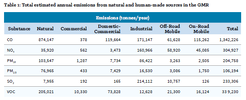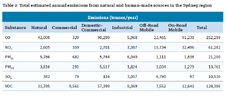- Joined
- 30 June 2008
- Posts
- 15,610
- Reactions
- 7,492
I wonder... Yes everyone wants to buy new EV cars. I have no doubt they will be economical and state of the art.
However we have currently have millions of ICE cars on the road. I suspect there could be a decent market for converting some ICE cars to EV.
We know it is already happening with elite specialised vehicles. But I'm thinking if battery prices really do fall and some "standard"electric motors and associated hardware becomes well priced then a niche market of conversions could be encouraged.
It won't be common garden vehicles. However I suspect car owners who really love their older Mercedes or Cressida or Lexus could be interested in investing a decent amount to go electric.
However we have currently have millions of ICE cars on the road. I suspect there could be a decent market for converting some ICE cars to EV.
We know it is already happening with elite specialised vehicles. But I'm thinking if battery prices really do fall and some "standard"electric motors and associated hardware becomes well priced then a niche market of conversions could be encouraged.
It won't be common garden vehicles. However I suspect car owners who really love their older Mercedes or Cressida or Lexus could be interested in investing a decent amount to go electric.







